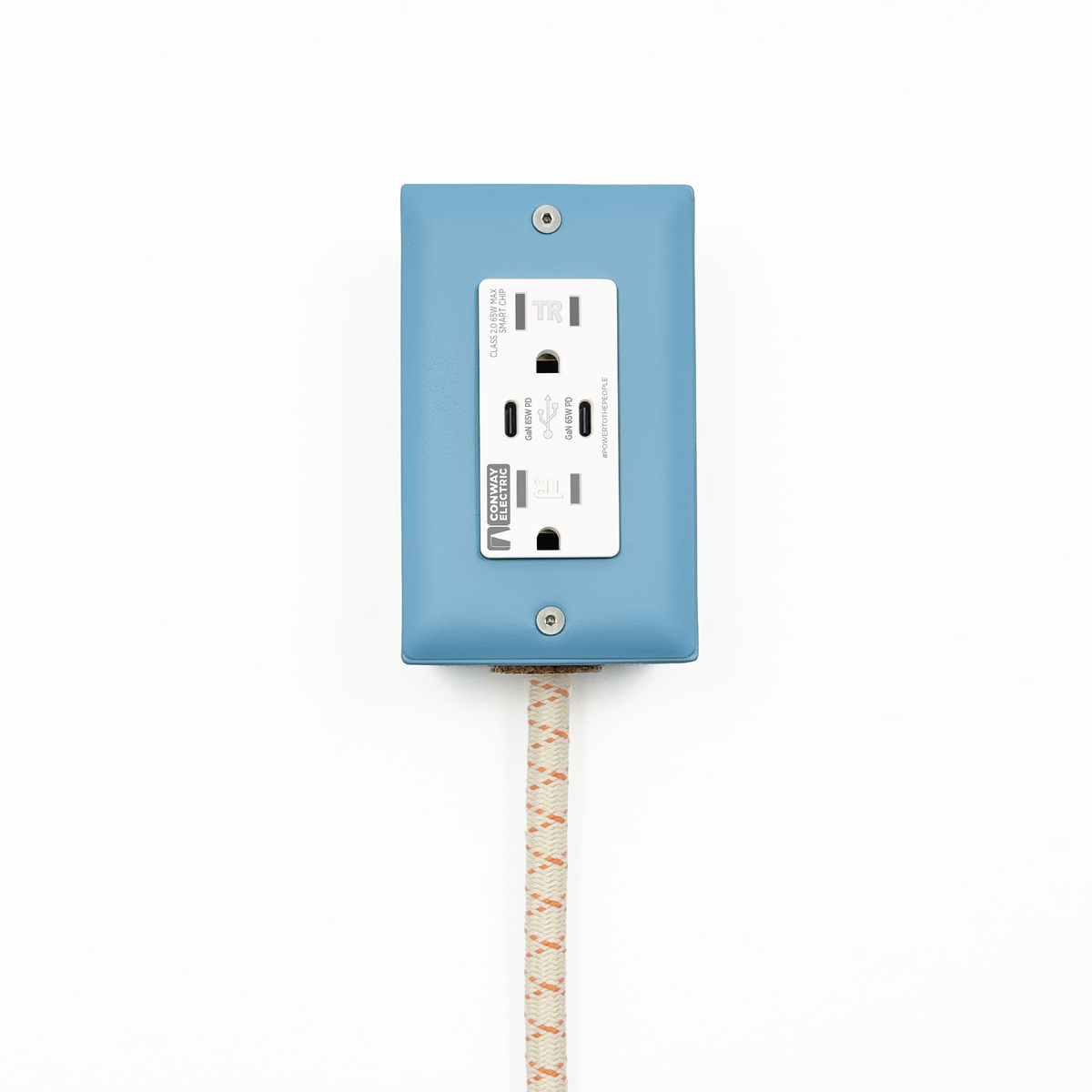Why We Bother With Being Made In America
Growing up, Dad had a business in our house. He invented some machines for the ceramic wire industry and built a business selling those machines worldwide. It put food on the table, and he sold it for a tiny amount of money after 30 years.
Every product you purchase from Conway Electric supports a 50 year old factory owned by a young family, a student and assembly line worker building the Extō and saving for college, a Mom raising her kids by working at a powder coating company, a young man just out of college working a sales job at a component supplier, and many others.
When you buy from us you give them hope.
Our family struggled as Dad built his business. In the beginning we could have qualified for food stamps if my parents applied, but just squeaked by until Mom's career and Dad's business grew. They were eventually able to afford a solid middle class life in a close knit community where we rode bikes to school.
It was the kind of life that is becoming obsolete.
Shipping containers are piling up in our ports because our trade deficit is growing (we import more than we export).
In a meeting this week a large company kept pressing us to manufacturing in China. "The margins would be so much better and you could do it all there. You wouldn't have to manage any of the details."
And they're right. Building Conway Electric is hard. We could save over 30% in our product cost by going to China. Or India. Or Pakistan. Or anywhere that would enlist low-paid workers to assemble our product for 12 hours per-day every day.
We could tell the factories we do business with "better luck on the next project." We could let go and know people would lose their jobs so we could put their money in our pockets.
But why?
It doesn't have to be that way.

We went to Detroit recently and toured the Shinola factory where we celebrated the opening of their watch-strap manufacturing. We walked halls where the Jeep Willys was made over 50 years ago and saw buildings that once held successful businesses get razed to slow down the plight of abandonment. Shinola is trying to turn things around, and it's working.
We had lunch last week with Rachael Joy, a Hollywood producer whose midwestern family was disrupted by foreign manufacturing and is on a mission to share the message of what Made in America really means - on a personal level.
It means a lot more than hollow marketing.
Evidence of the departure of manufacturing is everywhere, but the importance of American Manufacturing needs to be embraced for what it means to the United States as a whole.
We'd rather be a small piece of positive change than another part of the problem. Keeping work in the US is critical and the bigger we get the more we'll give back.
Our factory weaving our cord covering is an American factory in business for 50 years supporting generations of workers and 2 young daughters of the dedicated owner.
Our powder coater in Seattle employs over 50 people, including Moms and Dads.
We get some components from a local Seattle supplier employing the young college grad.
The Extō is assembled right next to Lake Union where we can see the Seattle skyline and where a 22 year old is building his savings to pay for college, among others working on the product line.
Our model is a leaner model: we can run colors faster, find out what our customers want and test new products quickly without a lot of waste, while paying a living wage.
Does it cost a little more? Well, cost is what you pay, value is what you create. Our value is in local, community, neighbor and friend. Providing hope and opportunity while creating products that can last a lifetime rather than a minute.
What type of business would you prefer?
It's not easy, but it's worth it and we're not going to stop.
Thanks for supporting us as we grow, we know our purpose means a lot to you.
Leave a comment
Comments will be approved before showing up.





